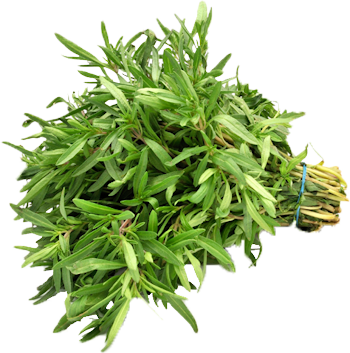|
Savory leaves and
tender shoots contain incredibly high quality chemical compounds that are known
to have anti-oxidant, disease preventing and health promoting properties.
In addition, dietary fibre in this herb helps reduce LDL or bad
cholesterol while increasing HDL or good cholesterol levels.
Savory leaves
contain many essential volatile oils phenols such as thymol and carvacrol, as
well as linalool, camphene, caryophyllene, terpineol, myrcene, and other
terpenoids.
Thymol, one of
the important essential oils, has scientificaly been found to have antiseptic,
anti-fungal characteristics.
In addition,
another phenolic compound, carvacrol in savory inhibits the growth of several
bacteria strains like E. coli and Bacillus cereus. Carvacol, therefore, has
been used as food additive for its anti-bacterial properties and in addition,
it gives pleasant tangy taste and marjoram like smell to the food.
Savory herb is an
excellent source of minerals and vitamins that are essential for optimum
health. Its leaves and tender shoots are one of the richest source of potasium,
iron, calcium, magnesium, manganese, zinc and selenium. Potassium in an
important component of cell and body fluids that helps controlling heart rate
and blood pressure. Manganese is used by the body as a co-factor for the
antioxidant enzyme superoxide dismutase. Iron is required for red blood cell
formation.
The herb is also
a rich source of many important vitamins such as B-complex group vitamins,
vitamin-A, vitamin-C, niacin, thiamin and pyridoxine.
Dry savory
provides 1.810 mg of vitamin B-6 or pyridoxine; furnishing about 130% of RDA.
Pyridoxine keeps up GABA (soothening neurotransmitter) levels in the brain
which has stress buster function.
Vitamin C helps
body develop resistance against infectious agents and scavenge harmful,
pro-inflammatory free radicals.
Vitamin A is a
fat soluble vitamin and antioxidant that is required maintaining healthy mucus
membranes and skin and is also essential for vision. Consumption of natural
fruits rich in flavonoids like vitamin A, carotenes helps protect from lung and
oral cavity cancers.
Dry savory herb
has amazingly high levels of vitamins and minerals. Just 100 g of ground dry
herb provides (% of recommended daily allowance)
120% of dietary
fibre,
25% of
Niacin,
130% of
vitamin B-6 (pyridoxine),
83% of
vitamin C,
177% of
vitamin A,
474% of
iron,
210% of
calcium,
94% magnesium,
of and
265% of
manganese
But no
cholesterol.
Natural Antiseptic Herb: The savory leaves contain volatile-oil phenols that make
it an exceptional natural antiseptic. Savory oil contains 30 - 45 per cent
carvacrol, 20 - 30 percent Thymol, and Cineol, Cymene and Pinene. Studies have
shown that Carvacrol may have the potential to inhibit and fight certain
bacterial such e.g. E. coli and Bacillus. Carvacrol oil is used as
antispasmodic, anti-inflammatory, and antimicrobial. Additionally, Thymol oil
in savory holds antiseptic, anti-fungal and antibacterial qualities. This makes savory tea excellent for general
health and assist in preventing infections in the body. Moreover, savory's
volatile oils are useful in aiding respiratory health. In recent studies
scientists have suggested using this oil to reduce sinus infections.
Rich sources of
Vitamin, Mineral and Fibre: The leaves of the savory
plant are rich in mineral e.g. potassium, iron, calcium, magnesium, zinc, and
selenium. This plant also contains many vital vitamins such as vitamin C,
B-complex, and vitamin A. Savory also has a high source of fibre too. The fibre
in savory leaf and shoot can help to lower the bad cholesterol and increase the
good cholesterol levels in the body. The rich sources of mineral, vitamins and fibre
in savory can help and strengthen your total health.
Immune System
Support: The rich sources of vitamin in savory are
able to ensuring good health and improving our immune system. Savory might help
and protect your body against common illnesses and infections. Furthermore, the
antiseptic qualities of savory offer protection against intestinal infections
and parasites. Savory's powerful
antiseptic action can improve liver and kidney functions too. Savory can reduce
a headache and helps to regulate the GABA levels in the brain to handle the
stress.
Home remedies for
cold and flu: Savory can be used as a tea during the cold and
flu season. This herbal tea can reduce the chance of catching a cold or flu.
The soothing oils in savory can reduce the cold and flu, sooth sore scratchy
throat and cough. You can also mix savory with chamomile, mint leaf and black
currant to strengthen the fighting cold and flu power. Mixture between black
currant and savory can help you to sooth convulsive cough.
Support Digestion: Savory tea used to relieve digestive upset, flatulence, diarrhoea,
and support digestive tract. You can use savory as a tonic to help prevent and
cure diarrhoea. Since savory has a mild diuretic, it can treat conditions that
affect the urinary track and even tuberculosis. Besides, drinking savory as a
tea can help maintain a healthy liver, bladder and good internal health.
Natural anti-inflammatory:
Savory can be used to treat abdominal pains, menstrual pains or
abdominal cramps. You can infuse 200-250g of savory in3 hours for making herbal
bath. Put the boiled savory in the bath water and take a regular bath for 15-20
minutes though.
Rheumatoid patients who suffer from high
fevers can dab savory on the affected areas to cure the painful symptoms.
Nature remedies for
stronger skin: Savory alcohol can act a good
disinfectant and can be used to treat skin infections and wounds. People with
oily skin can use savory in facial steams and baths for stronger skin. You can
infuse 20 gram of savory in 500ml of water for treating greasy complexions.
Used the water in small amounts and applied to the skin for 15-20 minutes.
|

